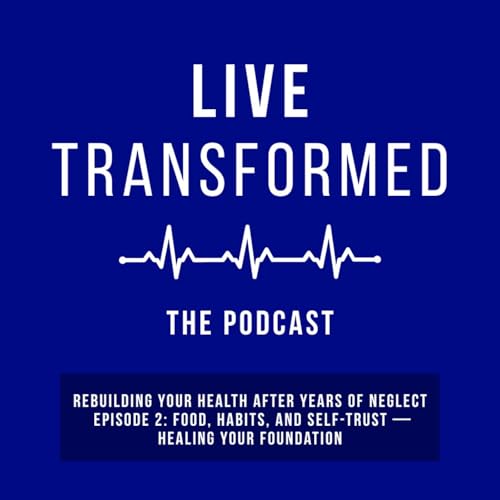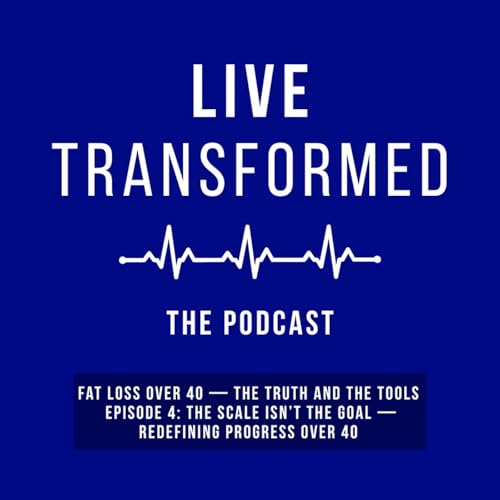
THI's Live Transformed Podcast
No se pudo agregar al carrito
Add to Cart failed.
Error al Agregar a Lista de Deseos.
Error al eliminar de la lista de deseos.
Error al añadir a tu biblioteca
Error al seguir el podcast
Error al dejar de seguir el podcast
-
Narrado por:
-
De:
-
Adam Kelley
Live Transformed Podcast — Redefining What Health Really Means
The Live Transformed Podcast dives deep into what it truly means to build a stronger body, sharper mind, and more fulfilled life. Hosted by Coach Adam Kelley of Transformed Health Initiative, each episode blends evidence-based health and fitness insights with real-life transformation stories that challenge the way we think about success, discipline, and purpose.
This isn’t just about workouts and nutrition—it’s about who you become through the process.
We explore topics like sustainable fat loss, muscle building, stress resilience, faith, family, mindset, and the pursuit of excellence in every area of life.
Because living transformed isn’t about being perfect—it’s about becoming intentional, consistent, and grounded in truth so you can lead yourself first and live stronger for those who matter most.
© 2025 THI's Live Transformed Podcast-
 20 m
20 mNo se pudo agregar al carrito
Solo puedes tener X títulos en el carrito para realizar el pago.Add to Cart failed.
Por favor prueba de nuevo más tardeError al Agregar a Lista de Deseos.
Por favor prueba de nuevo más tardeError al eliminar de la lista de deseos.
Por favor prueba de nuevo más tardeError al añadir a tu biblioteca
Por favor intenta de nuevoError al seguir el podcast
Intenta nuevamenteError al dejar de seguir el podcast
Intenta nuevamente -
 21 m
21 mNo se pudo agregar al carrito
Solo puedes tener X títulos en el carrito para realizar el pago.Add to Cart failed.
Por favor prueba de nuevo más tardeError al Agregar a Lista de Deseos.
Por favor prueba de nuevo más tardeError al eliminar de la lista de deseos.
Por favor prueba de nuevo más tardeError al añadir a tu biblioteca
Por favor intenta de nuevoError al seguir el podcast
Intenta nuevamenteError al dejar de seguir el podcast
Intenta nuevamente -
 Oct 28 202517 m
Oct 28 202517 mNo se pudo agregar al carrito
Solo puedes tener X títulos en el carrito para realizar el pago.Add to Cart failed.
Por favor prueba de nuevo más tardeError al Agregar a Lista de Deseos.
Por favor prueba de nuevo más tardeError al eliminar de la lista de deseos.
Por favor prueba de nuevo más tardeError al añadir a tu biblioteca
Por favor intenta de nuevoError al seguir el podcast
Intenta nuevamenteError al dejar de seguir el podcast
Intenta nuevamente


